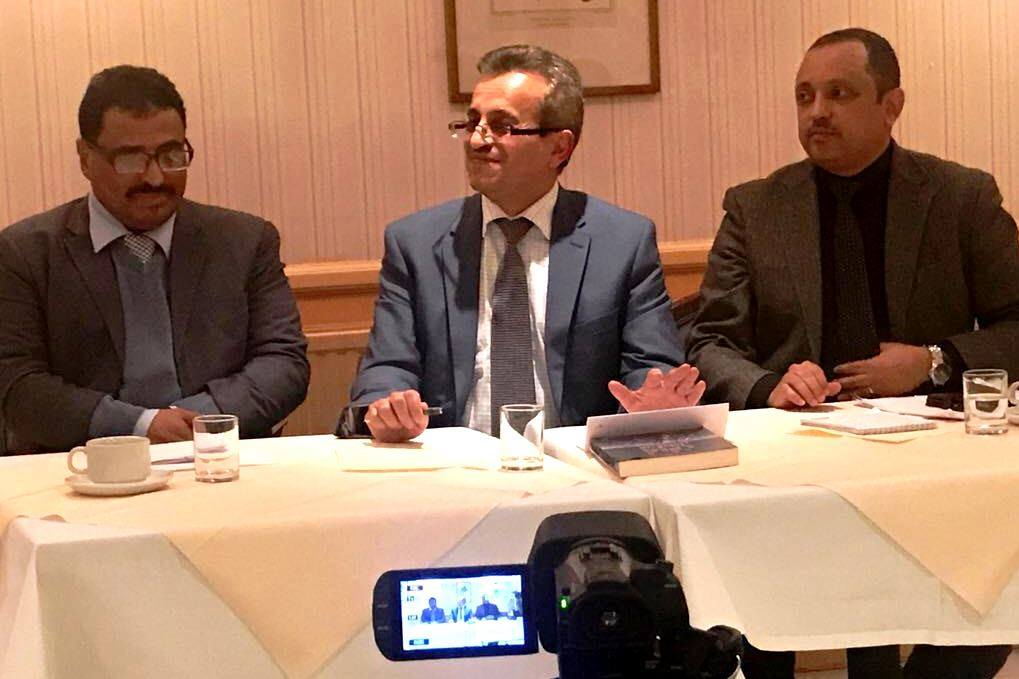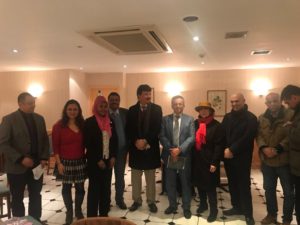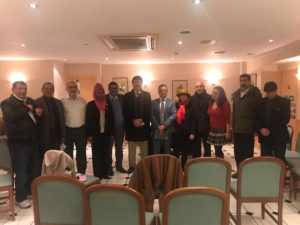
25 November, 2017 – A number of researchers and those interested in the Yemeni crisis took part in a seminar at London’s Arab Cultural Forum, touching on issues related to the roots of the crisis and the preconditions for reaching a just and peaceful solution to end the suffering Yemenis have experienced over the past three years.

Organized by Tamadon Foundation for Media and Cultural Development (UK), Dr. Hamdan Dammag, Vice President of the Yemeni Centre for Studies and Research in Sana’a, opened the event by addressing the issue of sectarian violence and the suppression of civil rights in Yemen as fundamental obstacles to peace. He highlighted the difficulty in achieving peace
with the Houthi movement unless it changes its radical ideology and oppressive practices. Dammag noted that the danger of the Houthi movement stems from its attempts to enforce and legitimise racial discrimination, social injustice, incomplete citizenship, and restrictions on civil liberties and civil rights–attempts that the Yemeni people cannot accept.
Yemeni writer and political activist Saleh Al-Jubwani next spoke about the federal state and the problem of central government in Yemen. He pointed out that all forms of contemporary conflicts were erupting when Yemenis sought to move away from central control by traditional forces to some form of decentralised government. Al-Jubwani added that the current war in Yemen is due to the rejection by these same traditional forces–represented by the Houthis and former President Ali Abdullah Saleh–to the outcomes of the national dialogue, first and foremost, the transition to a federal state.
Concluding the seminar, Tamadon Foundation President Dr. Mahmood Alazani discussed the nature of the current crisis and prospects for a sustainable solution, emphasising that reaching a stable future in Yemen depends on the ability to reinstate and implement the outcomes of the Yemeni National Dialogue. “It can only end peacefully with a return to this inevitable path, the alternative to which can only be disaster open to all possibilities–including the end of Yemenis as an entity and as a people.”

In attendance at the seminar were a number of academics and political activists from various Arab countries who contributed with valuable discussions and interventions.



